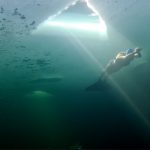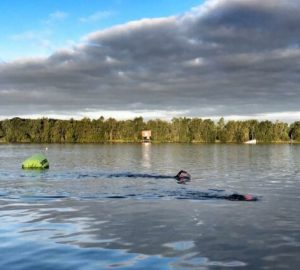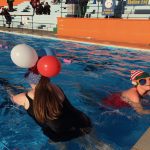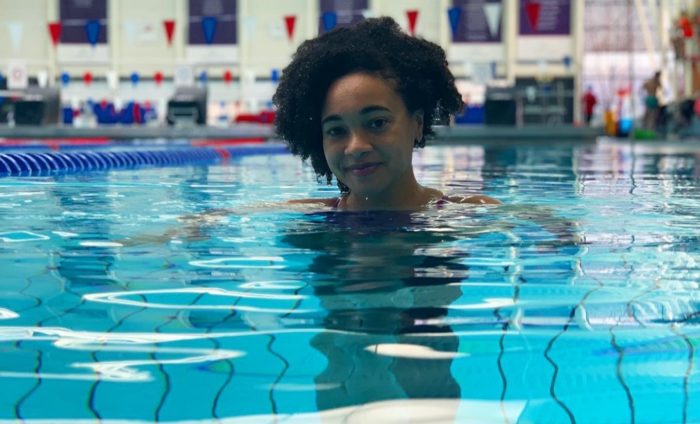
“When I turn up to a pool I just see myself as a swimmer.” Team GB’s Alice Dearing’s on racism in swimming
It is only at the end of our conversation that Alice Dearing mentions that she has never been wild swimming. It is a statement that I find fascinating and that highlights the disconnect between the professional and recreational open water swimmer. “Open water is one of the only sports where the professional side gets less attention than the recreational,” says Alice.
It is a strange situation: while wild and cold water swimming is widely covered in the mainstream media in the UK, the professional side of the sport garners hardly any coverage. Alice started competitive swimming when she was nine. A former world and European junior champion, she hopes to represent Team GB in the 10k open water race at the Tokyo Olympics. “There is much more to be done by elite swimmers to bridge that gap between recreational and professional swimmers,” she says.
For Alice, her move into the open water was a career progression within swimming. “I did an 800m when I was 15 at the British Champs and from that I was selected for an open water race. It was my very first 10k. It was freezing, about 14 degrees.” This was before new FINA rules allowed wetsuits in open water races under certain conditions. “I just about finished it,“ she says. “I am quite baffled how I got through it!”
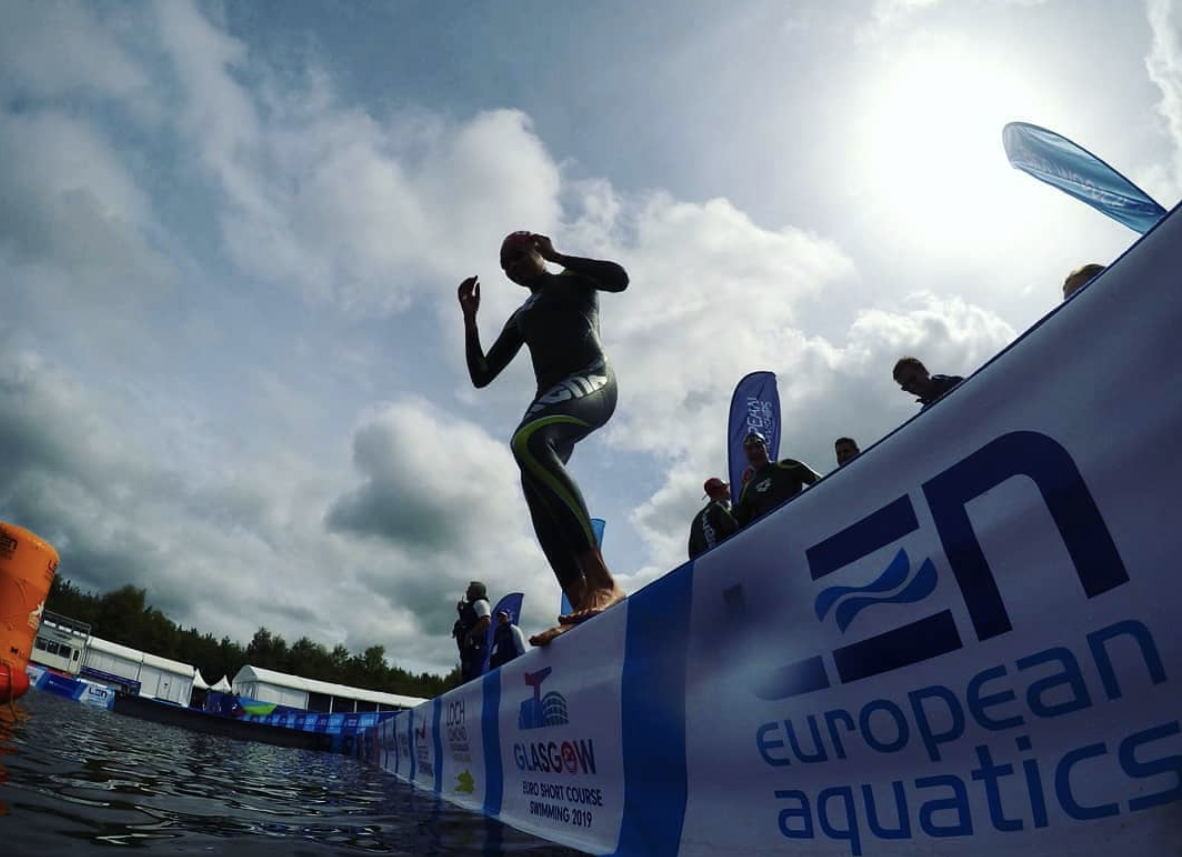
Racism in swimming
In 2013 Alice won the European Junior Championships, and from there her open water career took off. “It was only my second open water race,” she says. “If you are winning at that stage you are obviously going to be good at it in the future.”
Alice is the only black swimmer in Team GB and the second ever to swim competitively for Great Britain. Growing up in culturally diverse Birmingham, she was lucky not to experience direct racism. “Every swimming club that I went to had at least one other non-white swimmer so I never really saw it as an issue,” she says. “I went to a very diverse school so I never felt out of place.” But Alice is on a mission to increase the number of BAME swimmers and dispel the myths around blacks and swimming. While she is in a privileged position, she realises that others aren’t so lucky. “It is a middle class sport,” she says. “For inner city black families, swimming isn’t a priority and swimming lessons aren’t affordable.”
Alice experienced one instance of blatant racism when a coach indirectly called her a “n****r.” “It shocked me a bit because I kind of forget that I am a different race,” she says. “When I turn up to a pool I just see myself as a swimmer. I don’t see myself as being different from anybody else.”
A founding member of the Black Swimming Association (see The Black Swimming Association: breaking down barriers to swimming; RLSS partners with Black Swimming Association), Alice now campaigns for the involvement of blacks in swimming. “The big stereotype is that blacks can’t swim,” she says. “It is decades of repetition of these lies that black people can’t float or that we are too heavy and the water won’t support us. Even swimming teachers tell black people that they can’t float.”
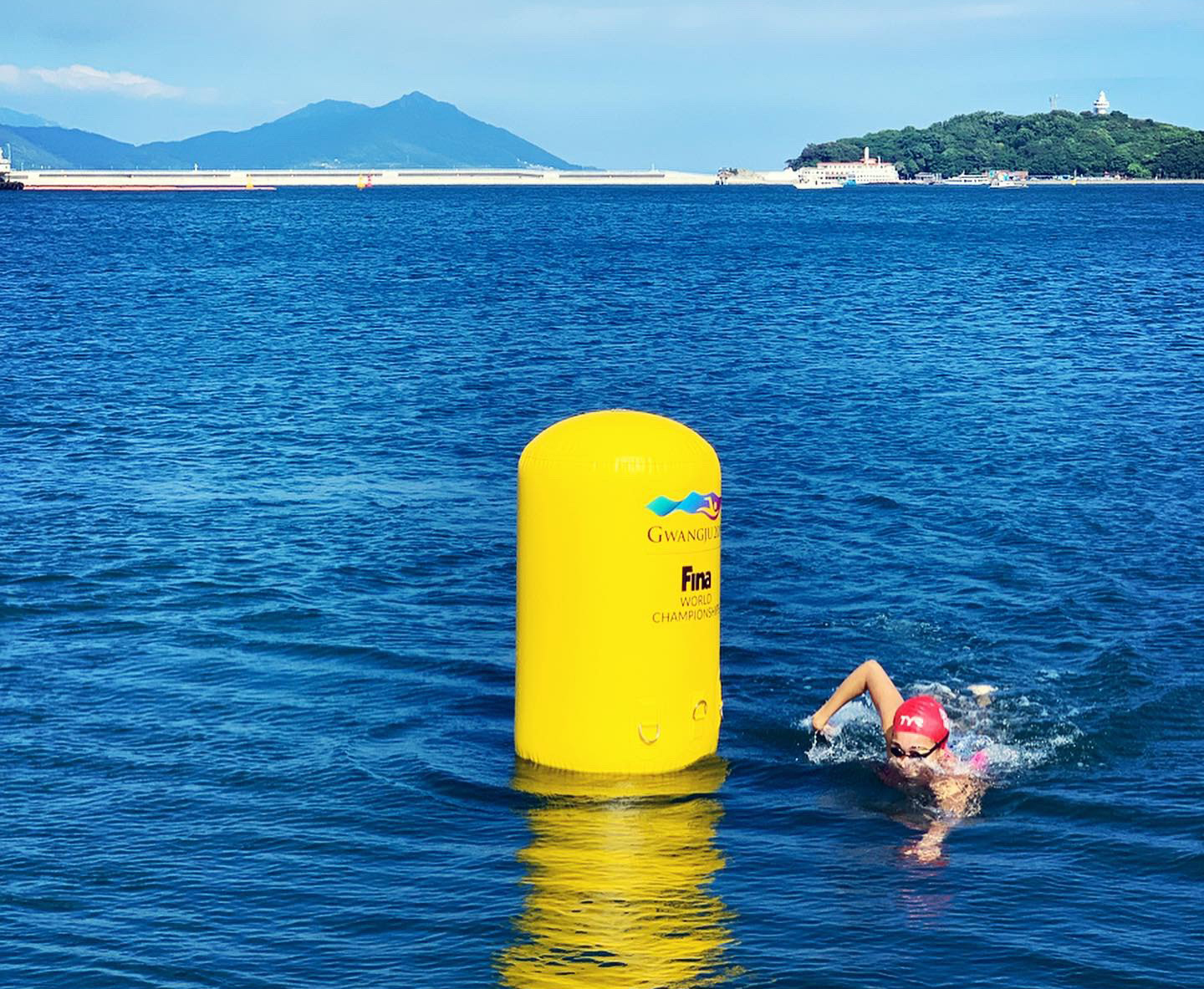
Tokyo 2020
Alice is now concentrating on qualifying for the Tokyo Olympics this summer. The final qualifiers take place on 13 May in Japan. “Psychologically it is challenging to have the qualifiers so late,” she says. “I have a few practice races leading up to it to get my tactics right. I have every intention to qualify, but if I don’t, what will I do with the rest of my season?”
It is the eternal conundrum of the professional athlete. Luckily, Alice already has a politics degree under her belt and is now studying for a masters in social media and political communication. “I like learning so I thought I would carry on,” she says. “Especially if I am going to be in Loughborough, I didn’t want to
just swim.”
Our conversation turns to wild swimming. “I do love it when we go to an open water competition because it is so much prettier than a pool,” she says. “But I have never actually been wild swimming. I always see people doing it and think it looks so cool, but I look at the temperature of the water… I would have to get out within ten minutes!” We decide that she has to give it a go – watch this space!
This interview took place in March 2020.






